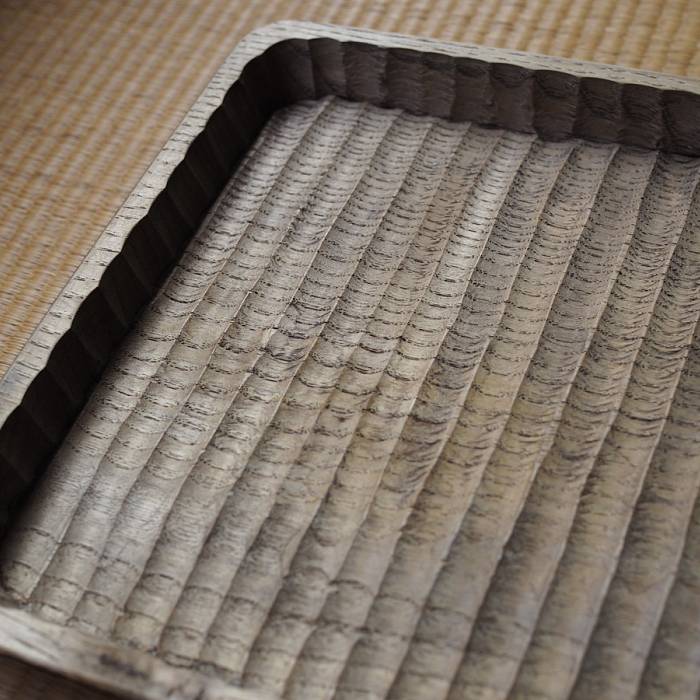
Japanese Folk Craft: 'The Wagatabon' Carved Wood Tray
Course Overview
Wagatabon is a type of wooden tray that used to be made by roof shingle makers in Wagatani village, Ishikawa, the snowy area of Japan. It is said that the trays were made there since early 17th century. The makers used to cleave green chestnut log to produce shingles, and kept the good ones to carve trays in winter. They exchanged their trays for clothes and food. Large ones were used for carrying bowls and plates, small ones for keeping small tools. Deep ones were also used for giving an offering of rice and grain to their ancestors at the small shrine in their houses. In 1961 the whole village left because of the construction of dams, and the craft died out. Then the beauty and simplicity of Wagatabon was re-discovered by several craftspeople, including Tatsuaki Kuroda, Japan’s first living national treasure in woodwork. Featured guest instructor Masashi Kutsuwa, accompanied by Shinichi Moriguchi will teach this rare craft for the first time in North America. They have been researching and making wagatabon for nearly 20 years. Students will split a log, carve the simple tray with a flat chisel and round gouge and then stain their tray with tannin. The course will feature ample time for discussion of Japanese folk crafts and the resurrection of traditional forms. Like in many other countries, utensils and tools for daily life were made from green wood. There were craftspeople who specialized in turning bowls and plates with hand-powered lathe, or carving ladles with axe and drawknife. The brief history of Japanese green woodworking will be discussed during the course.
Please note, this course will be offered twice during Wood Week. In order to accommodate the travel schedule, the first session will be offered on two different days March 7 & 9, with the Carvers Conference held on March 8, included with the course. The second session, March 10-11 will take place on consecutive days.
